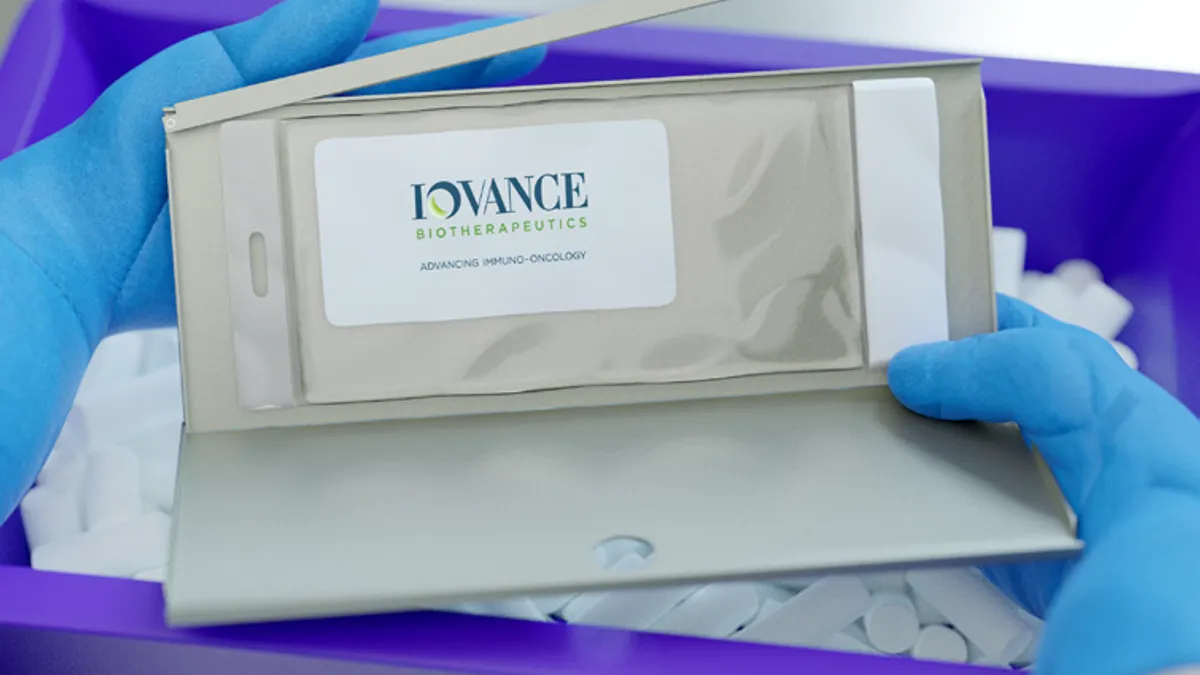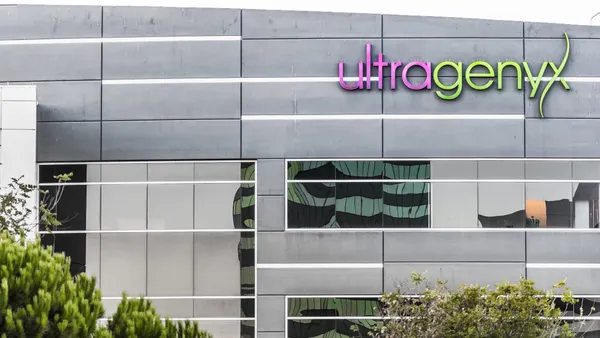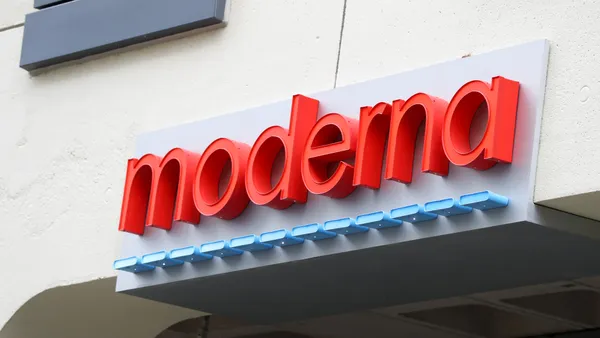Iovance Biotherapeutics will lay off staff in a restructuring that follows a significant cut to its revenue forecasts earlier this year.
A spokesperson on Thursday confirmed Iovance’s plans to reduce its workforce by “less than 20%.” A regulatory filing showed Iovance employed 838 people at the end of last year, though a company presentation last month indicated that number had grown to more than 1,000. Iovance’s workforce will still have more than 1,000 people following the job cuts, which will affect full-time employees as well as contractors, according to the spokesperson.
“After careful evaluation of our long-term goals, operational needs, and resources, we have implemented a strategic restructuring that includes a selective reduction in force to support our mission to innovate, develop and deliver TIL cell therapy to patients in need,” the spokesperson wrote in an email, referring to the type of cellular medicine Iovance specializes in. “This restructuring will extend our cash runway, and we remain on track to deliver on our financial goals.”
In a second quarter earnings report Thursday afternoon, the company said that 19% of its workforce would be impacted by the cuts. The restructuring will save Iovance more than $100 million annually and enable it to operate through the fourth quarter of 2026. Iovance will also “continue to optimize and refine its cost structure” through what it described as “operational excellence initiatives” over the next few quarters, it said in a statement.
Iovance had about $307 million in cash on hand at the end of June.
The layoffs come after a slow commercial start for Amtagvi, a cell therapy Iovance developed for an advanced form of skin cancer. Amtagvi is the first marketed cellular medicine made by engineering human cells known as tumor-infiltrating lymphocytes, or “TILs.” The therapy originated from research at the National Institutes of Health in the 1980s and got to market only after decades of fine-tuning, as well as multiple regulatory delays.
Amtagvi was cleared in February 2024 for people whose melanoma progressed after a commonly used immunotherapy or targeted cancer medication. It’s derived from a patient’s tumor tissue in a complex, weekslong manufacturing process. Upon approval, analysts and investors were skeptical of its sales potential, given questions about demand and the complex logistics involved. At about $515,000, the drug’s list price was also at the time the highest of any cell-based medicine for cancer in the U.S.
Iovance initially projected product revenue — which includes contributions from a different immunotherapy called Proleukin — would reach $450 million to $475 million this year. But in May, it cut that forecast by 40%, to between $250 million to $300 million, citing “recent launch dynamics” that had changed its view. In a research note last month, Mizuho Securities analyst Salim Syed noted how prior guidance was modeled on launches from other marketed cancer cell therapies known as CAR-T treatments, whereas the updated projections rely on “real data” from centers actively administering Amtagvi.
Iovance said in its latest earnings report that 102 patients were treated with Amtagvi in the second quarter, equating to about $54 million in sales. Shares fell about 30% as the numbers “were on the lighter side” of the 100 to 110 patients Iovance had anticipated treating, and total product revenue of $60 million missed consensus estimates, wrote Syed in a note to clients Thursday.
Amtagvi could be approved in Europe, the U.K. and Canada this year. It’s also in late-stage testing for non-small cell lung cancer.
Iovance shares have lost most of their value over the last 12 months.
Editor’s note: This story has been updated to include details from Iovance’s earnings report.















